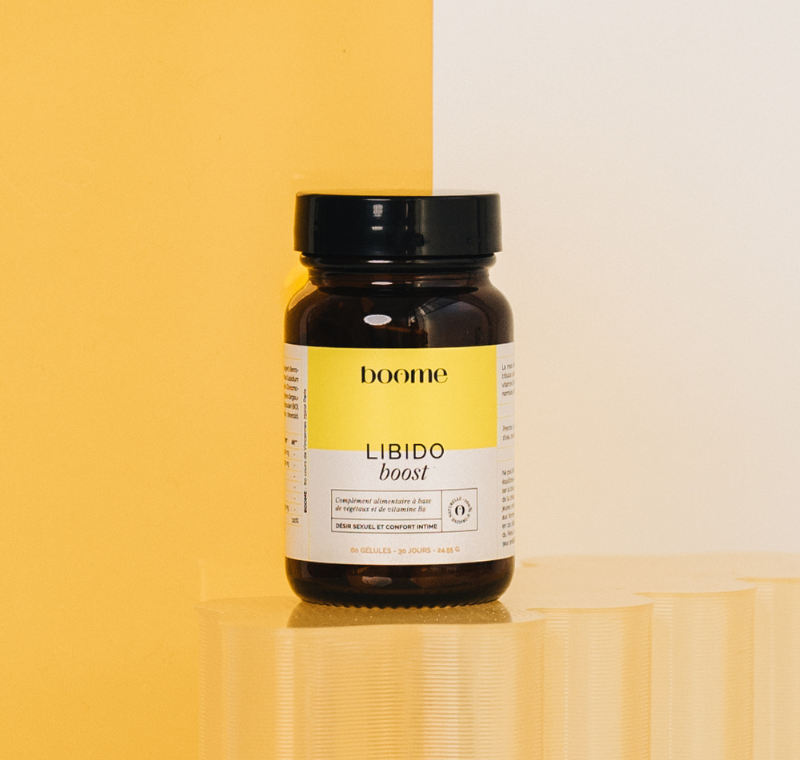
Do you sometimes feel flat, lacking energy or motivation? These moments of the blues can happen to anyone. But why do some days seem so heavy, when everything was going well yesterday? A simple drop in morale can have multiple causes: fatigue, stress, or even a hormonal imbalance. Good news: understanding the origins of this state is the first step to freeing yourself from it. Discover in this article practical advice to regain your momentum and say goodbye to gray thoughts!
Low morale : definition and symptoms
Knowing how to recognize the symptoms of low morale is important to better cope with it and prevent it from getting worse.
What is low morale ?
A low mood is a temporary emotional state where one can feel sadness, weariness and discouragement. Anyone can feel the blues at any time. For example, following:
- a stressful event;
- a hormonal imbalance;
- or a simple lack of sleep .
Rest assured: feeling down is only temporary. And with a few adjustments to your lifestyle , you can quickly regain your good mood .
Symptoms of low morale
The blues manifest themselves in a variety of ways. And they can affect both the body and the mind:
- Disturbed appetite: Have you lost your appetite or are you experiencing food cravings ? These are signs that you may need comfort.
- Lack of energy: Chronic fatigue , even after a good night's sleep , should also put you on the right track.
- Sleep disturbances: you have trouble falling asleep or you suffer from repeated nighttime awakenings.
- Low motivation: You feel unable to find pleasure or interest in activities that previously enjoyed.
- Loss of libido: You have lost interest in intimate relationships, which is often linked to emotional or physical discomfort.
Has your sex drive stalled? Our article How to Increase Your Libido should help you get it going again!
Blues, depression, anxiety and depression: how to differentiate them?
Feeling blue , depressed, chronic depression... Be careful, all these emotional states are frequently associated, in a confusing way, with low morale . Except that each has its own characteristics, intensity and lasting impact on daily life.
The blues: a passing state
The blues are a form of occasional sadness, often due to a specific event. Such as, among others:
- a disappointment;
- postpartum;
- family worries ;
- a change of season.
They manifest as a feeling of melancholy and demotivation. But they fade quickly, usually without any special intervention. Low morale doesn't significantly disrupt your daily routines ... And your good mood is never far away!
Wondering if the postpartum period lasts 3 months, 6 months, or 1 year? Our article , How Long Does the Postpartum Period Last , will clear up any doubts you may have!
Depression: more intense, but temporary
Depression is more pronounced than the blues, as it can last for several days or even weeks. However, it remains temporary. It manifests itself as:
- a loss of energy;
- a feeling of emptiness;
- difficulty experiencing pleasure.
Anxiety: A stress-related condition
Anxiety is a condition that is frequently triggered by higher than usual stress levels . It is accompanied by physical symptoms, such as:
- muscle tension;
- rapid breathing;
- palpitations.
Despite the discomfort it causes, this feeling of worry or fear is also temporary. However, you may also be affected by anxiety disorders, which are persistent. If this is the case, don't hesitate to seek help from a doctor or psychologist.
Depression: A serious psychological disorder
Depression is not like the "classic" low mood . It is a long-term condition that profoundly affects every aspect of your life. It manifests itself through:
- constant mental and physical fatigue ;
- intense sadness;
- a general loss of interest;
- physical disorders (sleep, appetite, libido).
It requires professional help , as it can have a significant impact on your life.
What are the causes of low morale ?
There can be many causes of low morale ! By identifying them, you'll be able to better understand your state... and, of course, take better action.
Psychological factors
Certain specific psychological factors , linked to life events, can influence our morale and our good mood :
- Chronic stress : Being overexposed to stress for a long time can deplete emotional (and physical) resources. The result: you feel discouraged and far from being in great shape .
- Difficult life events : Emotional shocks (bereavement, moral conflicts , separation or job loss) can cause a temporary – or sometimes even prolonged – drop in morale .
- Mental fatigue and cognitive overload : Being constantly stressed, whether by work or personal responsibilities, can cause mental exhaustion and an inability to manage emotions.
Physical factors
Low morale can be linked to physical disorders, such as:
- Lack of physical exercise : Insufficient physical activity can affect the production of endorphins, one of the happy hormones that promotes a feeling of well-being. This can have a significant impact on your mood.
- Nutritional deficiencies : Not eating a healthy diet can cause physical fatigue . And have direct consequences... on your bad mood !
- Medical conditions : Certain illnesses such as anemia or chronic infections can also cause fatigue, and affect your mood.
What if it was a hormonal imbalance?
Hormones are chemicals produced by endocrine glands, such as the thyroid, adrenal glands, pancreas, testes in men, or ovaries in women. They play a crucial role in regulating mood, stress, and emotional stability. When hormone levels are disrupted, it can lead to symptoms of depression, anxiety, and fatigue.
However, hormonal fluctuations are numerous in a woman's life: they can be linked, for example, to pregnancy, postpartum, menopause or even the menstrual cycle. They can then make your good mood disappear for a while, like the famous baby blues for example, which affects many new mothers.
Here are some examples of links between hormonal imbalances and low morale :
- Serotonin and dopamine : These hormones, also known as "happy hormones," are involved in mood regulation. For example, low levels of serotonin, produced by our brains from the amino acid tryptophan, can lead to feelings of sadness and depression.
- Cortisol : This is the stress hormone. Excess cortisol, often caused by prolonged stress or hormonal imbalances, can alter mood and lead to symptoms of depression, irritability, and fatigue.
- Estrogen and progesterone : These female hormones influence not only fertility and the menstrual cycle, but also mood. An imbalance, particularly during pregnancy, menopause, or due to hormonal disorders, can cause significant emotional fluctuations, including low mood and depressive symptoms.
- Thyroid : Thyroid hormones regulate metabolism and energy. Thyroid dysfunction, such as hypothyroidism, can lead to fatigue, depression, and decreased motivation.
- Testosterone : In men, decreased testosterone levels can be associated with loss of energy, motivation, depressed mood, and difficulty concentrating.
How to get your morale back?
You can get your super- good mood back by simply changing a few daily habits. Here are our 10 best tips to recharge your batteries and (re)boost your mental well-being!
-
Get enough sleep and maintain a sleep routine
Quality sleep is essential for restoring your body and mind. So, always get a good night's sleep ! Also, try to go to bed and get up at regular times to help your body clock . -
Do sports
We told you... It's important to regulate your endorphin production. A simple 30-minute walk a day is enough to give it a boost . Your morale will thank you! -
Expose yourself to natural light
Lack of light, especially in winter, can "give you the blues." So, take advantage of the sun whenever possible to shake off your bad mood . -
Adopt a balanced diet
Choose foods rich in vitamins and minerals: fruits, vegetables, dairy products , whole grains, lean proteins and good fats. -
Consume booster foods
Add mood- boosting foods like Omega 3s ( fatty fish , nuts), dark chocolate (rich in magnesium), and chia seeds to your diet. Yum! -
Practice relaxation techniques
Try meditating or practicing yoga. Practice some breathing exercises: you will send positive vibes to your mind. -
Maintain your social network
And we're not even talking about TikTok! Talk about your feelings with loved ones, stay social with friends, or join groups that share your interests. In short: don't stay alone. -
Set small goals
Long live small victories! By setting yourself simple tasks and celebrating them every day, you will regain confidence and motivation. -
Limit alcohol and caffeine consumption
These substances can disrupt sleep and worsen your irritability or anxiety. -
Consult a professional if necessary
If the low morale persists, seek professional help to identify the source of the problem and find appropriate solutions.
Did you also know that there are vitamins that are good for your mood? Vitamin D, for example, affects the functioning of neurotransmitters like serotonin, while vitamin B6 is thought to play a positive role in anxiety and depression. Saffron, meanwhile, has a positive impact on the management of anxiety and depression.
So, if you suspect a deficiency or feel you need a boost, get a blood test or hormone assessment and consider supplementing. Our Moral Boost dietary supplement is particularly ideal for all women who have recently given birth, but also for those who need emotional support.
Low morale is a common experience that can affect everyone at different times in life. But now you know how to identify its causes and recognize its symptoms. You can now take concrete steps to regain your well-being. So, take care of yourself, because your morale is the key to your daily balance!










